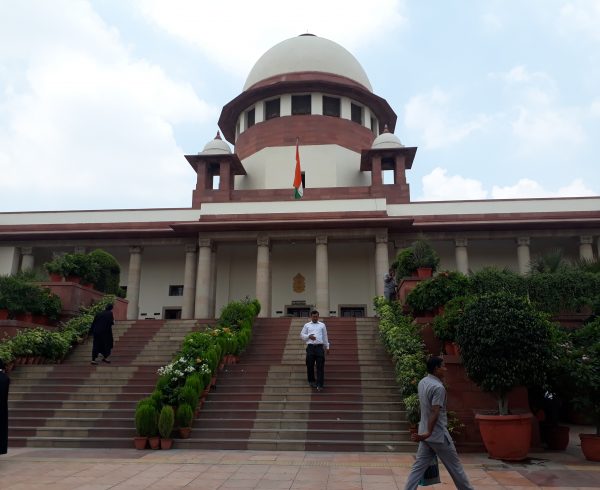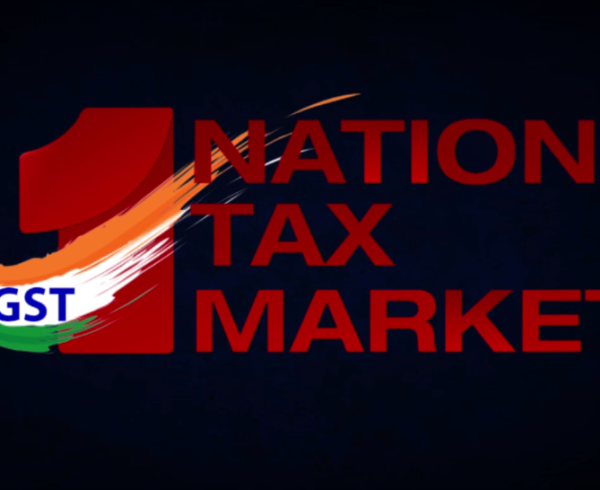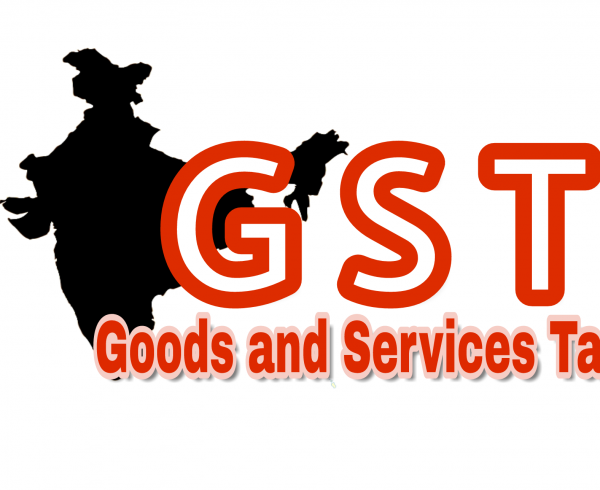|
GST updates |
|
|
|
|
|
Date: |
16 April 2020 |
|
Issues: |
Applicability of GST on
consideration paid to Directors |
Point of debate and
recent Advance Ruling
Schedule III of the CGST
Act, 2017, provides that ‘Services by an employee to the employer in the
course of or in relation to his employment’ do not qualify as supply of
services or goods. Accordingly, such services are not subject to GST.
In a recent order in the
case of Clay Craft India Private Limited< ![if !supportFootnotes]>[1]< ![endif]>, the Rajasthan Advance Ruling bench
has held that the consideration paid to Directors of a company (who are also
separately employees of the company), whether in the form of salary and
commission, should attract GST. Accordingly, as per entry 6. of Notification no.
13/2017 – Central Tax (Rate), dated 28 June 2017, the company is liable to
discharge GST liability, under the reverse charge mechanism.
The Rajasthan Advance
Ruling bench may have summarily determined the applicability of GST on said
consideration. However, the issue has been a matter of litigation since the
Service tax regime. In our view we should delve further into the subject to
determine the applicability of GST.
Past judgments
In the case of Allied
Blenders and Distillers Pvt. Ltd. vs. Commissioner of Central Excise & Service
tax, Aurangabad< ![if !supportFootnotes]>[2]< ![endif]>, the assessee company was paying
remuneration to its Directors in the form of salary. The company was even
deducting Income tax TDS in Form 16. The Directors’ names were included in the
salary return filed for Income tax by the company. The Directors were not even
paid Sitting fee for board meetings. The Mumbai Tribunal bench held as follows:
‘16. Also, from the
documents produced by the appellant it is crystal clear that the Directors who
are concerned with the management of the company, were declared to all statutory
authorities as employees of the company and complied with the provisions of the
respective Acts, Rules and Regulations indicating the Director as an employee of
the company. No contrary evidence has been brought on record by the Revenue to
show that the Directors, who were employee of the appellant received amount
which cannot be said as ‘salary’ but fees paid for being Director of the
company. The Income Tax authorities also assessed the remuneration paid to the
said directors as salary, a fact cannot be ignored. The judgments cited by the
revenue cannot be applied to the present case as the facts are different and the
finding of Income tax authorities accordingly also different in the said case.’
Separately, in the case of
Brahm Alloy Limited vs. Commissioner of CGST & Central Excise, Durgapur< ![if !supportFootnotes]>[3]< ![endif]>, a Show cause notice was issued to
the appellant company for payment of Service tax on the consideration paid to
Directors. An order confirming demand was issued subsequently. However, the
Commissioner (Appeals) later reduced the demand of Service tax only on the
remuneration paid to Directors. An appeal against this order was filed with the
Tribunal. However, the Kolkata Tribunal confirmed the reduced demand, stating:
‘It is my considered view
that to establish the employer-employee relationship for the purposes of the
remuneration/salary, the Resolution of the company should cover both, “the terms
of appointment/hiring of the services of the individual and similarly it should
also cover that in case of nonperformance of the specified duties, the
individual shall be fired and/or his appointment would be terminated”. In short,
to establish the employer-employee relationship, the clause of hiring and firing
are an essential ingredient without which it cannot be construed whether the
individual is the Promoter/Director or an employee Director. The remuneration
cheque has to be paid on a month to month basis along with the admissible
perquisites. There is a deviation in the facts of the present case. I also
observe that the Directors have shown the remuneration under the head ‘Salary’
in the respective Income Tax Return and Tax was deducted at source by the
appellant company on such payments.
8. In view of the above
discussions, I do not find any reason to interfere with the impugned order.
Accordingly, the same is sustained. The appeal filed by the appellant is
dismissed.’
The above judgments bring
to light that salary and / or remuneration paid to Directors should be treated
differently, depending on the circumstances and manner of appointment.
Our view
In our view, we should explore
the possibility that an individual may perform the duties of an employee and as
a member of the Board of Directors independent of each other. This is an oft
seen phenomenon in Indian companies. Officials of higher management are often
awarded positions on the Board.
It is essential to note that
the duties and responsibilities of a Director are clearly laid out in the
Companies Act, 2013 (Section 166). These may be the same, in part, as those of
any other employee. But in essence the role of Directors is that of stewardship
and leading the company. Directors are the face of a company and as such could
be agents of the company. This is not the case with employees. Also, one could
state that the roles of a Director are akin to providing management consulting
services to the company whereas employees are the ones who execute such ideas /
advices. In such a case the services of one role are not ancillary to the other.
For example, the role of the Board of Directors is to determine the future
course of the company and it is the employees who execute such vision. It is
also pertinent to note that the compensation of individuals as an employee and
as a Director are laid out separately. One may rely on the following judicial
precedents for this supposition.
In the case of Comed
Chemicals vs. CN Ramchand< ![if !supportFootnotes]>[4]< ![endif]>, the Supreme Court held that an
individual may hold the position of an employee in a company and also be a
Director. The two positions are independent of each other and the individual
performs such services in separate capacity.
The Supreme Court relied on
Catherine Lee vs. Lee’s Air Farming Limited< ![if !supportFootnotes]>[5]< ![endif]> and Anderson vs. James
Sutherland (Peterhead) Limited< ![if !supportFootnotes]>[6]< ![endif]>.
In the case of Catherine
Lee vs. Lee’s Air Farming Limited, the appellant claimed compensation
under the Workers’ Compensation Act, 1922, for the death of her husband who was
engaged in the capacity of an aircraft pilot. The claim of the appellant rested
on the allegation that at the time of his death her husband was a ‘worker’, in
that he was employed by the respondent company. The respondent company denied
the claim that the deceased was a ‘worker’ under the said Act as he was, at the
time of the accident, the controlling shareholder and governing director the
respondent company. It was held as follows:
‘Their Lordships conclude
therefore that the real issue in the case is whether the position of the
deceased as sole governing director made it impossible for him to be the servant
of the company in the capacity of the chief pilot of the company. In their
Lordships’ view for the reasons which have been indicated there was no such
impossibility. There appears to be no greater difficulty in holding that a man
acting in one capacity can give orders to himself in another capacity than there
is in holding that a man acting in one capacity can make a contract with himself
in another capacity.’
Also, in the case of
Anderson vs. James Sutherland (Peterhead) Limited one of the Lords on the
bench held as under:
‘The managing
director’s powers and functions are defined by the terms of his appointment, his
tenure of office is governed by these terms, his salary is specially fixed by
them, and he is subject to the direction of the board. The difference between
his position and that of a manager who is not a director is that he is also a
director. But the functions of a director and manager are not identical… In my
opinion therefore, the managing director has two functions and two capacities.
Qua managing director he is a party to a contract with the company and this
contract is a contract of employment; more specifically I am of the opinion that
it is a contract of service and not a contract for services. There is nothing
anomalous in this; indeed it is a commonplace of law that the same individual
may have two or more capacities, each including special rights and duties in
relation to the same thing or matter or in relation to the same persons.’
Lastly, one should also read
the conditions laid under entry 6. of the abovementioned Notification, which
lays the responsibility of the payment of GST on the company, under the reverse
charge mechanism. The notification states the category of service as ‘Services
supplied by a director of a company or a body corporate to the said company or
the body corporate’ and the supplier of service as ‘A director of the
company or a body corporate’. One may interpret that the intent of the
notification should only be to tax the services of directorship provided by the
Director. Services provided by the individual / employee (who is also a Director
in the company) are not required to be taxed under said Notification. The
‘services supplied by a director of a company’ are among others those of
stewardship and promoting the objects of the company for the benefit of its
members. It is also pertinent to note that the powers of the Board of Directors
(Section 179 of the Companies Act, 2013) are vested only with the Directors and
as an employee one may only execute such powers on the instructions of the
Board. Thus, the said Notification does not provide the power to tax services
which a Director may provide separately, as an employee of the company.
Conclusion
While the judgment in the
case of Clay Craft India Private Limited has stated that all
consideration received by a Director is towards his role of Directorship (and
therefore, exigible to GST) we beg to differ.
It has been industry wide
practice that key managerial persons are often inducted to the board of
Directors of a company. The ramifications of the Advance Ruling would lead to
companies paying GST on the salaries of such key managerial persons, which would
become additional cost of the companies affecting cash flows.
Its just a matter of time
that companies will start to receive enquires form tax officers based on the
above Advance Ruling.
Companies should take
ample care while:
< ![if !supportLists]>
>
< ![endif]>
Determining the contracts of employment of employees and determining roles of
Directors.
< ![if !supportLists]>
>
< ![endif]>
Determining compensation for the two roles separately and basis for the same,
which should be laid out clearly.
< ![if !supportLists]>
>
< ![endif]>
Redrafting
employments contracts where required.
< ![if !supportLists]>
>
< ![endif]>
Making
relevant amendments to the Articles of Associations, if required, to support
such facts.
< ![if !supportLists]>
>
< ![endif]>
Verify past treatment if Directors
fee were in fact fee for Directors’ services and erroneously were treated as
salary.
< ![endif]>
< ![if !supportFootnotes]>
[1]< ![endif]> 2020 (4) TMI 228
< ![if !supportFootnotes]>
[2]< ![endif]> 2019 (24) G.S.T.L. 207 (Tri. – Mumbai)
< ![if !supportFootnotes]>
[3]< ![endif]> 2019 (24) G.S.T.L. 616 (Tri. – Kolkata)
< ![if !supportFootnotes]>
[4]< ![endif]> (2009) 1 SCC 91
< ![if !supportFootnotes]>
[5]< ![endif]> 1961 AC 12 PC (The Court of Appeal of New Zealand, dated 11 October
1960)
< ![if !supportFootnotes]>
[6]< ![endif]> 1941 SC 203 (Case decided in the Court of Session, Scotland)







Leave a Comment